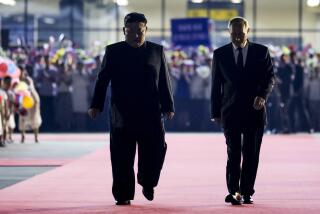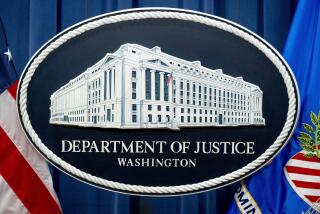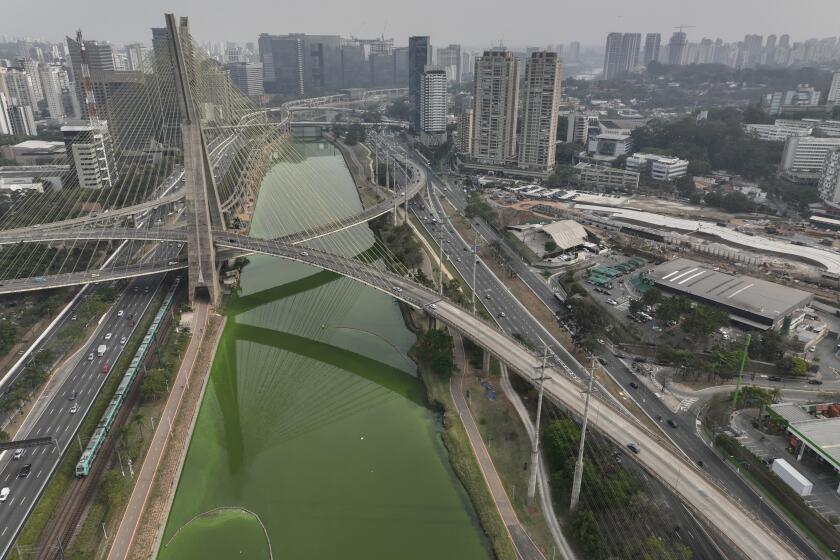Agency spied on South Korean blogger critical of president
Reporting from Seoul — Kim Jong-ik recalls the odd feeling of being watched, a sixth sense that often made him shoot a look over his shoulder.
“I had a hunch,” he said, “that I was some sort of target.”
For months, government officials here conducted a surveillance campaign focues on the 56-year-old chief executive of a financial company, monitoring his e-mails and credit card charges and secretly searching his office.
Kim, whose firm performed work for a former state-owned bank, was later indicted on charges of criminal libel after he posted a video on a company blog that was critical of President Lee Myung-bak.
The case is being called the South Korean Watergate, a scandal that critics of the president say points to an abuse of power by the conservative administration.
A widening investigation of the civil service ethics division, which trailed Kim, has led to one top official’s resignation. Criminal investigators also raided the homes and offices of five subordinates, who they say tried to destroy key evidence in the case.
Prosecutors last week said they had found evidence of a watch list compiled in 2008 by the ethics office that included not only Kim but the wife of one of the president’s opponents in the legislature, fueling speculation that the office pursued others deemed critical of the Lee administration.
Lee’s opponents have demanded an explanation of how much the president knew about the surveillance of Kim. The ethics division team formally reported to the prime minister’s office but actually works for the presidential office, according to news reports.
Responding to criticism, Lee called for an investigation to find out why the ethics office set its sights on a private citizen. South Korean law forbids government agencies like it to conduct such surveillance.
“The political powers destroyed this man’s life,” said attorney Choi Kang-wook, who represents Kim and has filed a lawsuit against the prosecutor’s office with the Constitutional Court.
Choi displayed reams of documents he said showed systematic scrutiny of Kim. “The government painted him as a dangerous subversive just because he held political views that were different from those of the president.”
Though never a supporter of the president, Kim says he kept his political views largely private, except for the video posting.
Cho Won-dong, the vice minister for general affairs, defended the actions against Kim.
“The ethics office investigators considered him a public servant because his company did work for a [onetime] government-owned bank,” Cho said. “They thought it was their job to investigate.”
Activists accuse the Lee administration of curtailing free speech. After an Internet blogger was jailed last year for allegedly undermining the nation’s financial markets, the watchdog group Reporters Without Borders placed the administration in its “under surveillance” category — one step from being “an enemy of the Internet.”
Some compare the surveillance of Kim to hard-line policies carried out by the nation’s former military regimes.
“Those who have experienced surveillance in a military dictatorship know how painful it is,” said Do Jong-hwan, a poet with the Writers Assn. of Korea. The group has lodged protests against the government, saying it has tried to silence dissent. “It’s nonsense that the prime minister’s office abuses its power to monitor civilians. You’re watching our democracy going backward.”
Lee supporters say the government was within its rights to consider Kim a subversive for associating with what they call “pro-North Korea, left-wing” scholars.
“His brother used to be a member of a national labor union. If he was just a pure civilian, he would not post that video,” said Cho Young-hwan, editor of the Internet site All in Korea. “He should be subject to an investigation, like the CIA in the United States.”
In 2008, Kim posted a 25-minute video clip critical of Lee, one he says was posted on numerous other sites. He received a few comments from employees in his 750-worker firm, but that was it, he says.
Within months, Kim alleges, government agents pressured his banking clients to threaten to pull their business unless he left the firm and sold off his stock. He says he plans to report the case to an international human rights committee.
Kim, a trim man with graying hair, says he’s living on savings and loans from relatives.
“I can’t believe that government officials chose to destroy a man’s life after reading a personal blog visited by 30 people a day,” he said. “It doesn’t make sense.”
Park is a news assistant in The Times’ Seoul Bureau.
More to Read
Sign up for Essential California
The most important California stories and recommendations in your inbox every morning.
You may occasionally receive promotional content from the Los Angeles Times.











